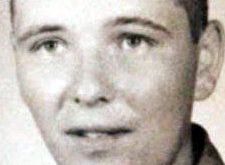“The Black Box” by Michael Connelly; published in hardback by Little, Brown and Company; 416 pp.; $29.99.
By Seamus Scanlon
In Michael Connelly’s 25th novel, “The Black Box,” the flawed protagonist LAPD Detective Harry Bosch tries to navigate his way through the emotional, social, personal and workplace culverts as he pursues a 20-year-old cold case.
These so-called soft inputs include his fraught interaction with his teenage daughter and current girlfriend and his anti-authoritarian and maverick behavior at work. His anathema to petty bureaucracy, number-crunching commanders and political correctness are refreshing and make Bosch’s character more nuanced and believable, adding to his authenticity rather than detracting from it. These features of Bosch’s character never feel forced or formulaic. As a result we can relate to him on a more experiential and visceral level because he is more human and more humane and more vulnerable. For example Bosch is not like Parker (the anti-hero of the brilliant Stark novels) whose unrelenting noir sensibility is as sharp as an ice pick and as austere as his actions.
The title refers to three elements: the black box (as in an aircraft) - the one clue that can unlock a murder enquiry, the black box as in a coffin where that some characters end up and also the black card-file box where intelligence gathered by beat cops on gangs the Crips and Bloods were recorded on 3 x 5 index cards and stored for the two decades. Bosch attempts to solve the murder case of “Snow White,” a white freelance journalist killed execution-style during the mayhem and upheaval that followed the acquittal of the police in the Rodney King assault case.
As a PR exercise the police hierarchy want to solve some of cold cases from 1992. However they miscalculated because Bosch requests the Snow White case that he had briefly worked at the time. He felt then that there was something more complex about the case than the riot-related killings because of the victim and the method of killing. And so it proves.
The case looks intractable until Bosch begins to make headway. As a consequence City officials grow alarmed that the only case that might be solved is the murder of a white journalist – creating another possible incendiary reaction by the LA residents. It is too late. Bosch, a dogged investigator, has discovered the black box’ clue. He is only interested in the truth wherever it leads and in bringing the perpetrators to justice. He follows the trail in defiance of his superiors. It leads to some complex and unexpected leads and suspects.
Racism, gang culture and warfare, journalistic investigation, political interference in police work, loyalty, corruption and fellowship are played out here. The writing is clear, concise and poetic at times. The story unfolds in an unhurried but convincing way. Connelly here shows he is a master storyteller, confident in his abilities at drawing us in. His understanding of police procedures and gang minutiae are on the mark. His social commentary is understated but strong. Overall, “The Black Box” is a superb novel. You will not be disappointed.
Seamus Scanlon’s first collection of stories, “As Close As You’ll Ever Be,” was published by Cairn Press in September.










